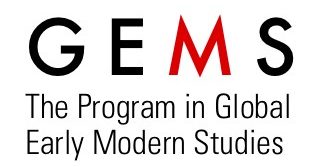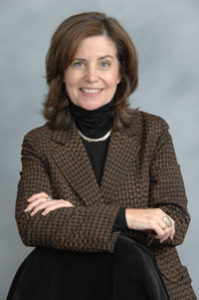Erec Koch
Acting Coordinator for Fall 2024 – Spring 2025

Erec R. Koch is Professor of French and of Global Early Modern Studies at The Graduate Center, The City University of New York. He has served as associate provost at Baruch College, dean of the School of Arts and Sciences, Hunter College, and dean of Humanities and the Arts at the City College of New York. A specialist in early modern French literature and culture, he has published on Pascal and Jansenism, the history and theory of rhetoric, French Classical theatre, the French moralists, philosophy and the history of ideas, theories of the passions, and the representation of the body. He is the author of Pascal and Rhetoric: Figural and Persuasive Language in the Scientific Treatises, the Provinciales, and the Pensées (1997) and of The Aesthetic Body: Sensibility, Passion, and Corporeality in Seventeenth-Century France (2008) and the editor of Classical Unities: Place, Time, and Action (2002). His most recent articles have appeared in PMLA, Dix-septième siècle, Littératures classiques, and Seventeenth-Century French Studies. He is currently working on a study of literary recycling in early modern France.
Amanda Wunder
Coordinator; on leave Fall 2024 – Spring 2025

Amanda Wunder is a cultural historian of Early Modern Europe with a focus on sixteenth- and seventeenth-century Spain. An interdisciplinary scholar, she works with sources and methods from history, art history, and material culture studies to explore a wide range of topics that includes fashion and textiles, sumptuary legislation, ephemeral architecture, polychrome sculpture, artisan lives, and artistic collaborations. Her most recent book, Spanish Fashion in the Age of Velázquez: A Tailor at the Court of Philip IV (2024), reconstructs the life and work of the royal tailor Mateo Aguado and puts this previously unknown artisan on the map as the most influential dress designer in the seventeenth-century Spanish world. Wunder is currently working on the phenomenon of disillusionment (desengaño) in Spanish art and culture, and she is also curating an exhibition on early modern Spanish fashion for the Hispanic Society of America. At the Graduate Center, Amanda Wunder is on the faculty in History and Art History, and she coordinates the program in Global Early Modern Studies. For more information on her publications, see Amanda Wunder’s website on Academia.edu.
Anna Akasoy
Anna Akasoy’s area of expertise is pre-modern Islamic intellectual history, especially the intersection of philosophy and mysticism as well as the transmission of knowledge across cultures. She is also interested in European cinematic and literary representations of Islam.
She is currently working on two research projects. One is a cultural history of falconry in the Middle East until the Ottoman period. The other is an exploration of the classical heritage of the Middle East and Asia, focusing the religious dimensions of the legend of Alexander the Great.
Clare Carroll
Clare Carroll is Professor of Comparative Literature. She does research in Renaissance Studies, with particular interests in cultural relations between Ireland and Italy, book history, early modern colonialism, epic poetry, and historiography. She is the recipient of awards from the Fulbright Scholar Program, the National Endowment for the Humanities, the Folger Institute, the Irish American Cultural Institute, Concordia University, and the Professional Staff Congress, CUNY.
She was elected President of the Renaissance Society of America for the period 2018-2020. She served for nine years as Chair of the Comparative Literature Department, for fourteen years and Director of Irish Studies at Queens, and for ten years and Coordinator of Renaissance Studies at the Graduate Center, CUNY. When she won the President’s Award for Excellence in Teaching in 1993, one of her students commented: “She encourages us to disagree, debate, and discuss. Most important, she gets us to think.”
PUBLICATIONS:
Books:
Exiles in a Global City: The Irish and Early Modern Rome, 1609-1783. Leiden and Boston: Brill, 2017.
Circe’s Cup: Cultural Transformations in Early Modern Writing about Ireland. Cork: Cork University Press, and Notre Dame, IN: Notre Dame University Press, 2001.
The “Orlando Furioso,” A Stoic Comedy. Tempe, Arizona: Medieval & Renaissance Texts & Studies, 1997.
Edited Collections:
Ireland and Postcolonial Theory. Cork: Cork University Press, Notre Dame, IN: Notre Dame University Press, 2003.
Editions:
Editor, Renaissance Literature, Oxford Bibliographies On-line, 2010-.
Editor, Othello and The Tragedy of Mariam, New York: Longman, 2002.
Co-editor, An Annotated Edition of “Solon His Follie”, co-edited with Vincent Carey [literary and textual introduction and notes by Carroll; historical introduction and notes by Carey]. Binghamton, New York: Renaissance English Texts Society, Medieval & Renaissance Texts & Studies, 1996.
Textbooks:
Co-editor, The Early Modern Period. In The Longman Anthology of British Literature, co-edited with Constance Jordan and Andrew Hadfield. Ed. David Damrosch and Kevin Dettmar. New York: Addison, Wesley, Longman, 1998; second edition, 2002; third edition, 2006; fourth edition, 2009.
Herman Bennett
Herman L. Bennett is a Professor of History. As a student of the early modern African diaspora, he primarily focuses on how dispossessed peoples navigate power and stake claims within the structures of dominance. At its core, his work engages the earliest formations of blackness, experiences that he views as inseparable from the historical configuration of the West. Writing the history of the West from its margins plays a considerable role in his relationship to the historical profession. As a perspective, it has meant that he constantly searches for ways to assist students and colleagues in seeing themselves as stakeholders so as to negotiate the workings of institutions and cultural formations with the ability to effect change in existing structures. Bennett has received fellowships from the Institute for Advanced Study at Princeton, the Mellon Foundation, the National Endowment for the Humanities, and the American Council of Learned Societies. He has lectured widely in Europe and the Americas, and comes to the Graduate Center from Rutgers University after starting his scholarly career at Johns Hopkins University. Bennett holds a Ph.D. in Latin American history from Duke University where he was a Mellon Scholar of the Humanities.
Monica Calabritto
Monica Calabritto received her “Laurea” degree in Classics at the Università degli Studi di Pisa and her Ph.D. in Comparative Literature, with a specialization in Renaissance Studies, from the Graduate Center of the City University of New York. Her research focuses on the interaction between medicine and literature and between medicine and law in early modern Italy and Europe, as well as on the relation between visual and verbal media in early modern European culture.
Presently, she is completing two books. One is the result of archival research performed in good part during a year spent in Italy with a I Tatti Fellowship (2004-2005) from the Harvard University Center for Italian Renaissance Studies in Florence. Her study focuses on the analysis and interpretation of the tensions between legal theory and practice and among legal, medical and social perspectives vis-à-vis the notion of insanity. The other book is a collection of essays, “Emblems of Death in the Early Modern Period,” co-edited with Peter Daly, on emblems andimprese of death produced in Europe between the sixteenth and the eighteenth century.
She is the author of the introduction to the first modern English translation, by John Crayton and Daniela Pastina, of Tomaso Garzoni’s The Hospital of Incurable Madness (Tempe, Arizona: Arizona Center for Medieval and Renaissance Studies, 2009) and of numerous essays and articles on Garzoni, imprese, gendered madness, melancholy, the relationship between literature and medicine in literary and medical texts, and the structure and function of various medical genres vis-à-vis the illness of melancholy in the early modern period.
Marvin Carlson
The Sidney E. Cohn Distinguished Professor of Theatre, Comparative Literature and Middle Eastern Studies. His research and teaching interests include dramatic theory and Western European theatre history and dramatic literature, especially of the 18th, 19th, and 20th centuries. He has been awarded the ATHE Career Achievement Award, the George Jean Nathan Prize, the Barnard Hewitt prize, the George Freedley Award, the Edgar Rosenblum Award, the Oscar G. Brockett Prize, and a Guggenheim Fellowship. He has been a Walker-Ames Professor at the University of Washington, a Fellow of the Institute for Advanced Studies at Indiana University, a Visiting Professor at the Freie Universitat of Berlin, and a Fellow of the American Theatre. In 2005 he was awarded an honorary doctorate by the University of Athens. His best-known book, Theories of the Theatre (Cornell University Press, 1993), has been translated into seven languages. His 2001 book, The Haunted Stage won the Callaway Prize. His newest book is the Theatres of Morocco, Algeria and Tunisia with Khalid Amine (Palgrave 2011).
Sarah Covington
Sarah Covington is Professor of History, specializing in early modern Britain and Ireland. She earned her PhD in history at the Graduate Center of the City University of New York and is the author of two books: *The Trail of Martyrdom: Persecution and Resistance in Sixteenth-Century England* (University of Notre Dame Press, 2004) and *Wounds, Flesh, and Metaphor in Seventeenth-Century England* (Palgrave-McMillan, 2009). She has been awarded a 2012-13 Mellon Fellowship at the CUNY Graduate Center, where she will continue work on her two book projects. The first, “The Black-Billed Birds and the Battling Seas: Oliver Cromwell, Memory, and the Dislocations of Ireland”, traces Oliver Cromwell and memory in the Irish historical, literary and folkloric imagination over three centuries. The second examines the reinterpretations of problematic biblical characters and episodes (Judas, Gethsemane) in the wake of the sixteenth-century reformation. Professor Covington also currently serves as the book review editor of the Renaissance Quarterly.
Joseph W. Dauben

Joseph W. Dauben is a membre effectif of the International Academy of History of Science, a corresponding member of the German Academy of Sciences Leopoldina, and a member of the Society of Fellows of the American Academy in Rome. He has been editor of Historia Mathematica, an international journal for the history of mathematics, and chairman of the International Commission on the History of Mathematics. A graduate of Claremont McKenna College (A.B. ’66) and Harvard University (A.M., Ph.D. ’72), Professor Dauben has been a member of the Institute for Advanced Study (Princeton) and Clare Hall (Cambridge University, UK), and the recipient of a Guggenheim Fellowship and a Senior ACLS Fellowship. He is an honorary member of the Institute for History of Natural Science of the Chinese Academy of Sciences, where he was the Zhu Kezhen Visiting Professor in spring of 2005. In January of 2012 he received the Albert Leon Whiteman Memorial Prize for History of Mathematics, conferred by the American Mathematical Society only once every four years in recognition of a career of outstanding contributions to the history of mathematics.
Martin Elsky
Martin Elsky is Professor in the Ph.D. Programs in English and in Comparative Literature, and in the Renaissance Studies Certificate Program, at The Graduate Center of the City University of New York, and Professor of English at Brooklyn College, CUNY. He is former Articles Editor of Renaissance Quarterly, and former director of the Renaissance Studies Certificate Program, an interdisciplinary program for doctoral students at the CUNY Graduate Center. He serves as Counselor on the Board of Directors of the Renaissance Society of America, and is on the Editorial Board of Epistèmé (Paris III). His interests have included English Reformation poetry, scientific prose, language theory, and, more recently, the English adaptation of Italian architecture as the setting of English Renaissance literature. His current interests revolve around the work and career of Erich Auerbach, including the post-World War I German reception of Dante, and Auerbach’s relation to Walter Benjamin. With Martin Vialon and Robert Stein, he has collaborated on a translation of selected letters of Auerbach.
Mario DiGangi
Mario DiGangi is Professor of English at the Graduate Center and Lehman College. He has published two books: Sexual Types: Embodiment, Agency, and Dramatic Character from Shakespeare to Shirley (University of Pennsylvania Press, 2011), and The Homoerotics of Early Modern Drama (Cambridge: Cambridge University Press, 1997). His research interests include feminist, materialist, and queer criticism; lesbian and gay studies; history of sexuality; early modern period, especially the drama of Shakespeare and his contemporaries; gender and sexuality in the Renaissance; historicism in Renaissance studies.
Will Fisher
william.fisher@lehman.cuny.edu
Will Fisher is Professor of English at the Graduate Center and Lehman College. He is currently working on two different book-length projects: the first is a book about sexual practices in early modern English culture (with chapters on kissing, chinchucking, intercrural sex, cunnilingus, the use of dildos, and flogging), and the second is a book about “bisexuality” and notions of sexual orientation. His research interests include the literature and culture of early modern England; the history of gender, sexuality, and race; early modern cultural studies.
Erika T. Lin
Erika T. Lin specializes in early modern English theatre and culture with particular attention to embodied performance, affect, spectacle, and audience. Her research examines dramatic texts, performance theory, and theatre historiography by incorporating approaches from many fields, including literature, social history, visual culture studies, anthropology, religion, and the history of science. In addition, she has written and taught on topics related to medieval theatre, gender and sexuality, the history of dance, folklore and popular culture, and Asian American studies.
Her first book, Shakespeare and the Materiality of Performance, won the 2013 David Bevington Award for Best New Book in Early Drama Studies. Drawing on sixteenth and seventeenth-century scientific treatises, murder pamphlets, travel narratives, dream manuals, religious sermons, legal records, and other primary sources, this book reconstructs playgoers’ typical ways of thinking and feeling and demonstrates how these culturally-trained habits of mind shaped not only dramatic narratives but also the presentational dynamics of onstage action. She is now working on her second book, tentatively titled Seasonal Festivity and Commercial Performance in Early Modern England, which analyzes May Games, Robin Hood gatherings, morris dances, and other popular practices to explore how performance as a ubiquitous mode of sociality transformed into the institutionalized aesthetic mode that we think of today as “theatre.” In addition, with Gina Bloom and Tom Bishop, she is currently co-editing a volume of essays on Games and Theatre in Early Modern England.
Professor Lin’s research has appeared in Theatre Journal, New Theatre Quarterly, and numerous edited collections. Her prize-winning articles include “Performance Practice and Theatrical Privilege: Rethinking Weimann’s Concepts of Locus and Platea,” which received the 2008 Martin Stevens Award for Best New Essay in Early Drama Studies; “A Witch in the Morris: Hobbyhorse Tricks and Early Modern Erotic Transformations,” which was named Honorable Mention for the Society for the Study of Early Modern Women’s 2016 Award for Best Article on Women and Gender; and “Social Functions: Audience Participation, Efficacious Entertainment,” which won the 2018 Barbara D. Palmer Award for Best New Essay in Early Drama Archival Research. Her work has been recognized by honors and grants from the American Society for Theatre Research and the Shakespeare Association of America, and she was the recipient of an Andrew W. Mellon Long-Term Fellowship at the Folger Shakespeare Library. She currently serves as the Book Review Editor for Theatre Survey as well as an elected member of the Board of Trustees of the Shakespeare Association of America.
Richard McCoy
Richard McCoy is Distinguished Professor at Queens College and the Graduate Center. He is a critical voice in the study of the interrelationship of literature and politics in the Elizabethan period. He is also recognized as a major cultural historian of the Early Modern period in England and as a distinguished voice in the field of Elizabethan drama. His most recent book, Faith in Shakespeare, attests to his central position in Shakespeare studies. His research interests include late medieval and early modern periods; 16th- and 17th-century English literature; Skelton, More, Sidney, Shakespeare, Spenser, Milton; Renaissance and Reformation politics, religion, and culture; ritual and iconography; new historicism and cultural poetics; early modern stage and performance theory.
Tanya Pollard
Tanya Pollard has a Ph.D. in Comparative Literature from Yale University and an M.A. in Classics and English from Magdalen College, Oxford, where she studied as a Rhodes Scholar. Her books include Shakespeare’s Theater: A Sourcebook (Blackwell, 2003), Drugs and Theater in Early Modern England (Oxford, 2005), and Shakespearean Sensations: Experiencing Literature in Early Modern England, co-edited with Katharine Craik (Cambridge, 2013). She’s currently completing a book titled Greek Tragic Women on Shakespearean Stages, forthcoming with Oxford University Press; with Tania Demetriou, she has co-edited two forthcoming special journal issues, Milton, Drama, and Greek Texts, and Greek Texts and Early Modern English Theater. Research and teaching interests include Shakespeare, early modern drama, Greek drama, classical reception, genre theory, theater in performance, history of medicine, science, bodies, emotions, and gender.
Professor Pollard serves on the Council of Scholars for Theatre for a New Audience, and has appeared in conversation with Ethan Hawke in Shakespeare Uncovered: Macbeth (PBS, 2013) and Christopher Plummer in Shakespeare Uncovered: King Lear (PBS, 2015). In conversation with actors, directors, and other scholars, she has spoken to New York City theater audiences on early modern plays by Shakespeare, Jonson, Middleton, Marston, and others. Recent articles include “Tragicomedy” in the Oxford History of Classical Reception in English Literature (2015); “Hecuba” in A Dictionary of Shakespeare’s Classical Mythology, ed. Yves Peyré (2015); “Greek Plays and English Dramatic Genres,” in Formal Matters: Reading the Materials of English Renaissance Literature, ed. Allison Deutermann and Andras Kisery (Manchester, 2013), 99-123; and “What’s Hecuba to Shakespeare?,” Renaissance Quarterly 65:4 (2012), 1060-1093. For more publications, see here.
Francesca Sautman
Francesca Sautman is Professor of French at the Graduate Center and Hunter College. She has authored La Religion du Quotidien: Rites et croyances populaires de la fin du Moyen Age (Biblioteca di Lares, 1995), and has edited Encyclopedia of Sex and Gender (Scribner/Gale/Macmillan, 2007), Same-Sex Love and Desire Among Medieval Women (St. Martins’ Press/Palgrave, 2001), and Telling Tales: Medieval Narratives and the Folk Tradition (St. Martin’s Press, 1998). Her research interests include Medieval and 16th Century Literature and Folklore, Gender and Queer Theory, French and Francophone Cultural Studies, Historical Anthropology, and Folklore.
Dennis Slavin
Dennis Slavin has authored articles on 15th-century music for international journals, including the Journal of Musicology, Journal of the Royal Musical Association, Early Music, Studi Musicali,and Musica Disciplina,and has contributed to the Journal of the American Musicological Society, the new MGG (Die Musik in Geschichte und Gegenwart), Leading Notes, Notes,and the Dictionary of the Middle Ages. He was co-organizer of the First International Conference on Binchois (Fall 1995) and is co-editor of Binchois Studies (Oxford University Press, 2000). He is also editing the songs of Binchois for a new edition of the composer’s secular music. He is past-president of the Greater New York Chapter of the American Musicological Society, and is currently serving as Associate Provost of Baruch College.
Domna D. Stanton
A French faculty member, Stanton is completing The Monarchy, The Nation and Its Others: France in the Age of Louis XIVth. She is also working on a 150-page section, on the seventeenth century, for Les femmes en littérature, 2 vols, edited by Martine Reid, to be published by Gallimard in 2016. Her most recent book, Dynamics of Gender in Early-Modern France: Women Writ, Women Writing (Ashgate) was published in autumn of 2014. Her research interests include seventeenth-Century French literature and culture; Early-Modern Studies; Women Writers; Critical Theory; Feminist theory; Human Rights.
José Miguel Martínez Torrejón
jose.martinez-torrejon@qc.cuny.edu

José Miguel Martínez Torrejón considers himself an Iberian scholar. His teaching and research evolve around three main areas, seen as inexcusably intertwined and belonging to the same context: Peninsular Medieval-Golden Age Literature, Colonial Historiography, and various aspects of the Portuguese Renaissance. He uses philological and rhetorical analysis to study the history ideas and the political uses of literature. He is the director of the Catherine of Bragança Center for Portuguese Studies at Queens College.
Emily Wilbourne
Emily Wilbourne is a musicologist specializing in theatrical music and sound in seventeenth-century Italy. Her work engages with questions of gender, performance and sexuality and with repertories of the commedia dell’arte and Italian opera; she is currently at work on a monograph entitled Seventeenth-Century Opera and the Legacy of the Commedia dell’arte. In 2008-9, Emily was an Andrew W. Mellon Postdoctoral Fellow in Music at Columbia University, and, more recently, her article, “Amor nello specchio (1622): Mirroring, Masturbation, and Same-Sex Love,” was awarded the 2011 Philip Brett Award of the LGBTQ Study Group of the American Musicological Society.









